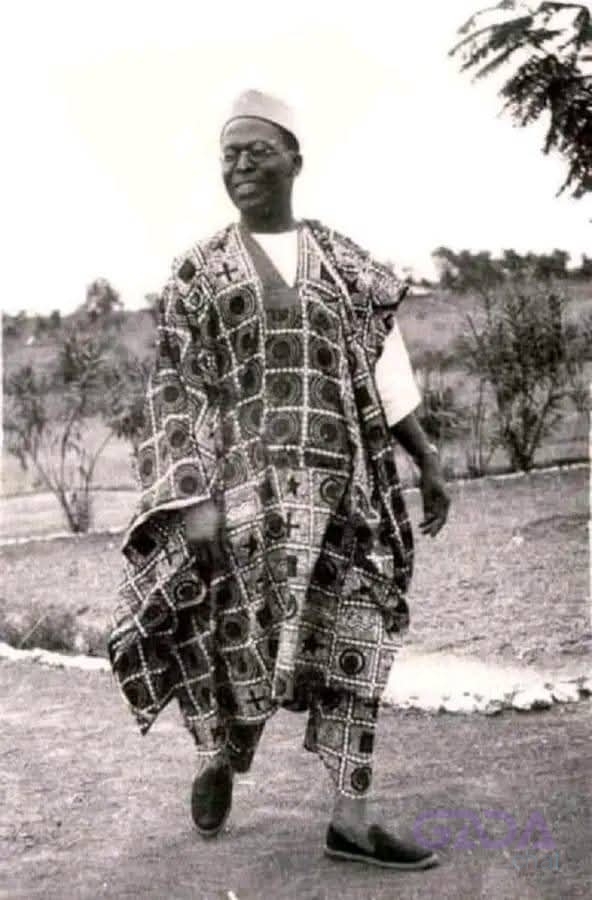One time, I was missing my aunt who had relocated out of the country and so I changed my DP to her picture and even forgot about it.
Few days later, I got a message in my inbox
"Hey beautiful"
Beautiful ke, me. Nobody has ever called me beautiful before. Handsome yes but beautiful ke.
"Are you their my queens?"
WTF is this
Me, queens, if it's queen sef e for better... I quickly went and checked the profile of the confused person
Lo and behold, a full grown adult married man
I was raised right so I replied respectfully, "Good afternoon sir"
"You are very good my angle, if it's other girls they no greet. you're so beautiful my love."
"Thank you sir"
"I love you"
"Just like that?"
"You are too beautiful. I can't felt this way for anybody before"
"What about your wife sir?" I asked while trying hard to understand the English.
"Forget about it. I and my wife have not se.x for two years."
"Why sir?"
"Forget about it. I want you when can we see."
I scratched my beards for a minute, then I replied
"When do you want to see me?"
"Come tomorrow."
"Ah, so fast"
"Please send me your body, I'm very hot for you."
"I should send you my body?"
"Yes any one. Se.x one"
"Oh, you mean se9xy one?"
"Yes, s.ex one send brea.st send back. please I'll do anything my angle"
Pause» you can add me Bcdblog for more stories and updates and to be notified when we post
I wanted to in.s.ul.t and block him. So, this is what girls are facing from men online. As a sharp guy I decided to monetize this lucrative opportunity at least I fit see money for fuel
I typed, "look sir, I've never done something like this before so if you want me to send you my b.oo.bs and a.ss, I need some compensation."
"I will do anything my angle."
"100k is not bad sir"
"Don't worry when you come I will give more but for now manage 10k."
"Okay sir send it to my Opay account." I didn't want to even negotiate before he will change his mind. Let him just send this one so I can block him
I quickly sent my account number
10k alert
"Have you see it my queens"
"Not yet my boo, I've not seen anything. Are you sure you have sent it darling?"
"I have, check now."
"Baby, I've still not seen it. Sometimes network will cause a glitch in the transformer in the cloud and the process will be so slow u will be issued false receipt."
"My angle, you are so smart unlike my wife but I no understand all this big big grammar."
Men that use angle instead of angel, gosh, I ha.ted him more. So I decided to push my luck
"Maybe you should send it again because I'm already nak.ed and even want to do video for u before my battery goes off."
"Ahhh video yes send video I will send it back now my angle.
Alert
100k
I shouted Jesus!!!
My wife ran in from inside, "babe what happened, what is it honey?"
I said, "Goalllll, Nigeria has scored Arsenal!"
My wife doesn't know anything about football so I can say anything and she will buy it
"Nigeria and Arsenal are playing?" She asked
I said, "yes, yes ooo, my queen and love, yes."
"Who scored?"
"Dwayne Johnson"
"But is that why you're shouting, please lower your voice." She hissed and went back in.
I checked my msg and saw almost 20 messages from baba
I opened it, baba was begging me to send the money back that he made a mistake and sent 100k instead of 10k
Immediately I blocked him
I entered my room, raised my voice and shouted, The Emperor, the conqueror, the champion, the Lion is here!!!
Then I told my wife to dress up cos I want to sp.oil her si.lly.
African jokes and stories
Francis Michael
One time, I was missing my aunt who had relocated out of the country and so I changed my DP to her picture and even forgot about it.
Few days later, I got a message in my inbox
"Hey beautiful"
Beautiful ke, me. Nobody has ever called me beautiful before. Handsome yes but beautiful ke.
"Are you their my queens?"
WTF is this
Me, queens, if it's queen sef e for better... I quickly went and checked the profile of the confused person
Lo and behold, a full grown adult married man
I was raised right so I replied respectfully, "Good afternoon sir"
"You are very good my angle, if it's other girls they no greet. you're so beautiful my love."
"Thank you sir"
"I love you"
"Just like that?"
"You are too beautiful. I can't felt this way for anybody before"
"What about your wife sir?" I asked while trying hard to understand the English.
"Forget about it. I and my wife have not se.x for two years."
"Why sir?"
"Forget about it. I want you when can we see."
I scratched my beards for a minute, then I replied
"When do you want to see me?"
"Come tomorrow."
"Ah, so fast"
"Please send me your body, I'm very hot for you."
"I should send you my body?"
"Yes any one. Se.x one"
"Oh, you mean se9xy one?"
"Yes, s.ex one send brea.st send back. please I'll do anything my angle"
Pause» you can add me Bcdblog for more stories and updates and to be notified when we post
I wanted to in.s.ul.t and block him. So, this is what girls are facing from men online. As a sharp guy I decided to monetize this lucrative opportunity at least I fit see money for fuel
I typed, "look sir, I've never done something like this before so if you want me to send you my b.oo.bs and a.ss, I need some compensation."
"I will do anything my angle."
"100k is not bad sir"
"Don't worry when you come I will give more but for now manage 10k."
"Okay sir send it to my Opay account." I didn't want to even negotiate before he will change his mind. Let him just send this one so I can block him
I quickly sent my account number
10k alert
"Have you see it my queens"
"Not yet my boo, I've not seen anything. Are you sure you have sent it darling?"
"I have, check now."
"Baby, I've still not seen it. Sometimes network will cause a glitch in the transformer in the cloud and the process will be so slow u will be issued false receipt."
"My angle, you are so smart unlike my wife but I no understand all this big big grammar."
Men that use angle instead of angel, gosh, I ha.ted him more. So I decided to push my luck
"Maybe you should send it again because I'm already nak.ed and even want to do video for u before my battery goes off."
"Ahhh video yes send video I will send it back now my angle.
Alert
100k
I shouted Jesus!!!
My wife ran in from inside, "babe what happened, what is it honey?"
I said, "Goalllll, Nigeria has scored Arsenal!"
My wife doesn't know anything about football so I can say anything and she will buy it
"Nigeria and Arsenal are playing?" She asked
I said, "yes, yes ooo, my queen and love, yes."
"Who scored?"
"Dwayne Johnson"
"But is that why you're shouting, please lower your voice." She hissed and went back in.
I checked my msg and saw almost 20 messages from baba
I opened it, baba was begging me to send the money back that he made a mistake and sent 100k instead of 10k
Immediately I blocked him
I entered my room, raised my voice and shouted, The Emperor, the conqueror, the champion, the Lion is here!!!
Then I told my wife to dress up cos I want to sp.oil her si.lly.
African jokes and stories 🔥
©️ Francis Michael











